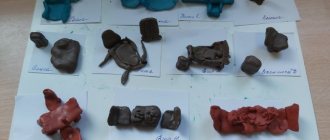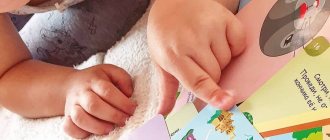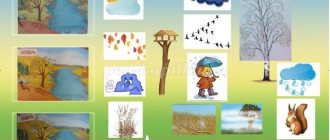Math quest and how to do it
The word “quest” comes from the English “quest”, “goal, task”; this word is also used to mark tasks in games, both computer and tabletop. In other words, a quest is a chain of tasks presented in a game form.
Note! Such an event can be done with or without a plot.
For example, children aged 5–6 years are still interested in watching the story about Baba Yaga and Little Red Riding Hood, but children aged 6–7 years may feel a little awkward.
Then it is better to put the quest in a more “adult” form, calling it, say, “Sports Math Quiz,” or make a story where the main character will be a detective, and he will investigate the case of missing answers to questions in a test. If the institution has a projector, then a background video can be installed to create the appropriate atmosphere. In order not to waste time downloading, you can launch it online. It is precisely these nuances that distinguish truly entertaining mathematics for children from ordinary lessons.
Nothing makes an event more interesting for children than the opportunity to have fun
Important! It is necessary to understand that the quest is, first of all, an entertaining event, and the teacher must be prepared for the fact that the interest of children is more important than the quality of the information conveyed.
How to quickly teach children to tie their shoelaces with a bow
This is not a lesson, a test, or a test. A good math riddle for children is one in which he wanted to find the answer, but not one where the answer was complicated and boring. Also, the child must have a reason to participate in a strange and incomprehensible action. Such a reason could be a certificate or a sweet prize.
The process of creating a quest looks like this:
- Come up with a story or reason why children will have to solve certain problems.
- Divide the quest into several stages (more on this below).
- Distribute the locations, keep in mind that in order to carry out the quest efficiently, you will have to distribute the children into groups of no more than 5 people, otherwise it will not be possible to pay enough attention to everyone at each stage. (If there are not enough teachers to work in parallel, you can conduct a regular lesson with part of the group, and a quest with the other, and swap them in the next lesson. (Or conduct a KVN, but more on that later).
Each quest should have the following several parts:
- The initial stage, in which you need to explain to the children what is happening now, talk about the rules of behavior in such a lesson. It is worth limiting yourself to a few easy tasks, giving priority to the involvement and interest of children.
- The main action in which children will move around locations and solve problems.
- The culminating part, in which the winners, if any, will be awarded (the best way out here would be to allocate first place, and give the rest diplomas / awards “for active participation”, “for the best poem”, etc.).
- Summing up is an important point that many scripts miss. A child always wants to feel important and grown up; he appreciates being appreciated. It is necessary to divide the children into groups and give them the opportunity to speak out about what happened, after which they should be carefully led to the idea that mathematics is more interesting than it seemed before. At this moment, the teacher should not be too persistent: feeling that someone else’s opinion is being imposed on him, the child may close himself off from the subject for a long time.
Rules for conducting mathematical KVN and coming up with jokes for preschoolers
Such an event is a much more difficult task than it seems at first glance. The whole problem is that the humor of children and the humor of adults are two completely unrelated categories.
Note! The best solution to this problem would be to replace humor with some other amateur activity, say, theatrical skits or songs.
This will make it much easier to create joke math problems for preschoolers. Children will be able to prepare such work together with their parents, gathering at each other’s houses (of course, if the math quest was originally planned to be carried out in the older group).
Road safety lessons for children in kindergarten
Note! It is imperative to ensure that there is no inequality between children, and that sufficient time is given to everyone.
It is better to leave the humorous part of the event entirely in their care. It should be remembered that it should be funny for the main participants of the holiday, and not for the parents and teachers who have gathered to watch them. A moment that is humorous for adults may not be funny for children.
At such an event, a child will be able to solve even the most difficult problem for him.



